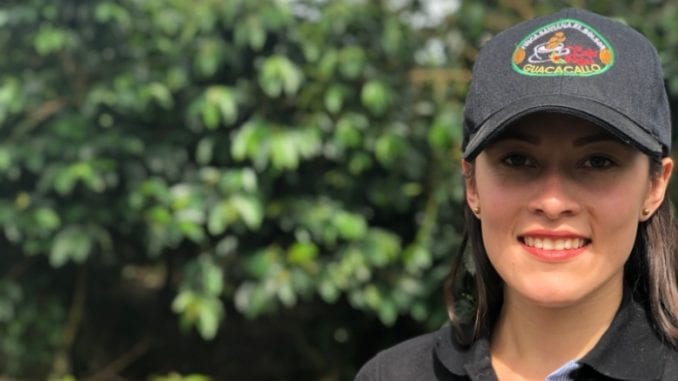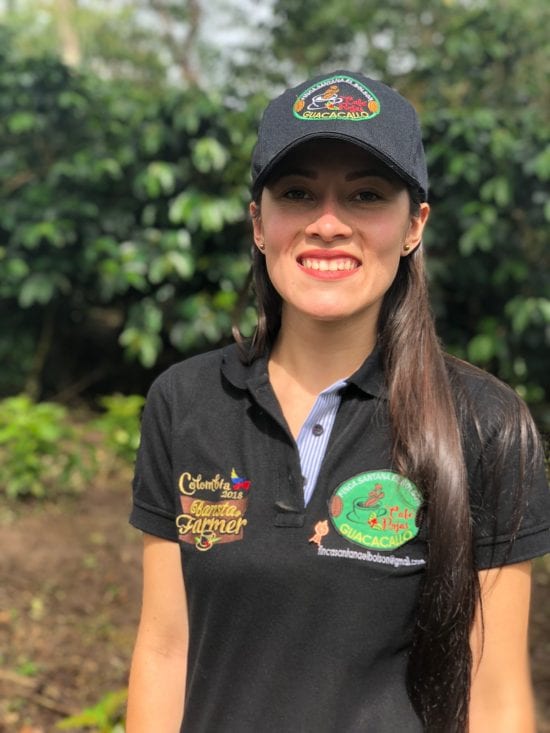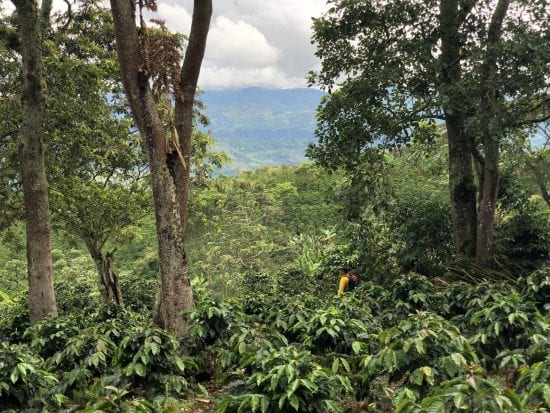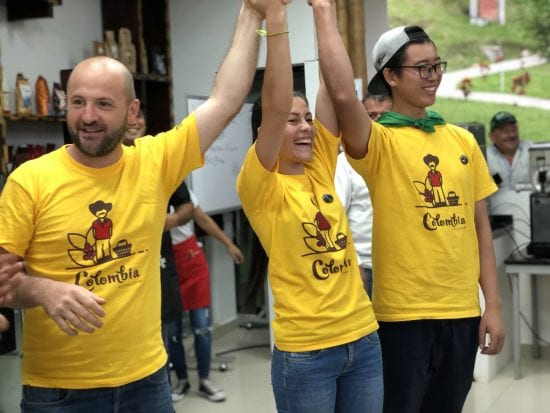
Lina Maria Rojas is the head of Finca Santana El Bolson in the Huila department of Colombia. At 21 years old, she’s part of a new wave of young coffee farmers, hoping to improve the quality of her coffee and inspire other young people to get involved in coffee.
BY ASHLEY RODRIGUEZ
BARISTA MAGAZINE ONLINE
Last month, we traveled to Colombia to cover Barista & Farmer, an immersive event that brings baristas from around the world to a coffee-producing region. This year, the baristas traveled to Colombia to meet producers in the Huila department. One of those producers was Lina Maria Rojas, a 21-year-old farm manager who took over her family’s farm a year ago.
Lina, who manages the 18-hectare farm Finca Santana El Bolson, didn’t imagine taking over her family’s farm, and neither did any of her siblings. Like many young people who grow up on farms in Colombia, she imagined leaving the farm to move to a bigger city. In this interview, we talked about what changed for her, what she hopes to improve on the farm, and what example she hopes to set for future coffee producers.
Ashley Rodriguez: What drove you to be more involved in your family’s farm? Did you always want to pursue a career in coffee?
Lina Maria Rojas: I started learning more about coffee five years ago, but when I was a child I wanted to leave my town because I felt like nothing was here. But then I realized the value of the farm for my family, and I wanted to get more involved in everything—I realized the splendor of the land. I then discovered that there was a school in Pitalito where I could study coffee, so I started going and my passion for coffee grew.

One of the goals I have is to change the mindset of my father and grandfather, because they’re part of the “old school” tradition of coffee. They simply want to grow coffee and sell it—no more. I want to show them that there is more than just selling coffee; there’s processing, roasting, creating a brand. I want to show them it’s possible to get more out of the farm.
I saw all the hard work that my father and grandfather put in and all the love they give the farm, and that’s what keeps me going and pushes me to learn more.
AR: Why do you think young people in Colombia are leaving farms?
LMR: Young people who grew up on farms grow up seeing their mothers and fathers work so hard in the fields, and they don’t want that. For me, in the end, it was what I wanted and why I stayed.

AR: What are some of the things you’ve done to improve the farm, since you mentioned wanting to change and modernize the ways your father and grandfather operated?
LMR: In terms of quality, we’ve looked a lot towards processing. Also, we stopped selling to cooperatives, and have developed direct relationships with buyers. We want people to be able to drink our coffee and know it’s good instead of it getting lost in a chain.
AR: Do you notice anything about the way you’re treated being a female head of the farm?
LMR: Lately, I’ve noticed that the women in this region are really pushing coffee growth. Sometimes women have to push men to think differently because they’re stuck in this mode of doing things the same way, and we have to show them how to work better and differently.
AR: How have you noticed the coffee scene in Colombia changing?
LMR: From my experience, the mindset of people who produce coffee here in Colombia used to be solely centered about money. They wanted to sell the coffee, get their money, and that’s it. Right now, they care more about what they’re drinking and are drinking more of their own coffee, so they’re taking better care to ensure a better cup of coffee.

AR: What are you the most proud of?
LMR: My father and grandfather. Everything I have, everything here on this farm, is because of their hard work. I learned everything from them, and the coffee is here and I can continue to grow our farm because of them.
AR: What do you hope for—not just for the future of your farm but also for the future of coffee in Colombia?
LMR: One of my goals is to be known in the region and to get our farm known around the world. I want people to look at me as an example. Before, I wasn’t interested in coffee, but once I realized how much work my father put into this farm, it changed my mind. I just want people to know this is possible.
This interview was done with the help of a translator and edited for clarity.

